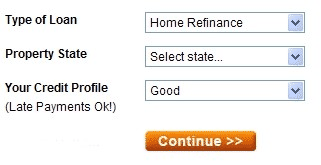Why is my payment increasing due to a shortfall in my tax escrow?
Here’s the whole question…
“My husband and I obtained a loan for a new house in December of last year. We recently were notified of an escrow shortage of close to 2300. If we don’t pay this our mortgage is due to increase more than 400.00 per mo.
After some digging we discovered that the reason for the shortage was that the taxes were based on the land only and not the sales price of the land. We also found out that all of the documents predating our closing (GFE, HUD-1, and the Uniform Residential Lending Application) all contained the taxes estimated based on the sales price of the loan; however the closing documents we signed were based on the land only.
We had rescinded a loan with the same lender (GMAC) the previous month because the payment skyrocketed to 500.00 more at closing. We put down an additional 20,000, then bid the loan out again and then the lender came in at a lower rate. Because of this I suspect that the lender estimated the taxes this way on purpose to keep the payment low and to keep us from going with another lender.
I am filing a claim against the title company (I think they were in cahoots as well) but I need some advice on how to approach my lender). I want to ask that they give me a loan modification to lower my rate and incorporate the correct taxes to keep my mortgage at a rate that we can afford. How can I persuade them to do this without going to court?
Thanks!”
First let me say there is a lot of confusion on escrows for property taxes and hazard insurance since they get paid along with the mortgage payment (PI) in the total payment (PITI). So don’t feel bad…many folks get confused.
However, it is import to separate the parts of the payment mentally to see exactly what’s happening. Many folks believe if they have a fixed rate loan that means their payments (PITI) will stay the same forever.
Not true. If either the property taxes or the hazard insurance (or both) increase or decrease over the life of the loan, the payment(PITI) will reflect it…sooner or later.
The more common occurrence is with property taxes since they get reassessed by the county on a regular basis to make sure the government is getting their rightful piece of the pie. In Colorado, most county tax assessor’s office revalues every two years. So the potential lies for everyone’s tax bill to either go up or down every two years. So even if my mortgage payment stays the same, my PITI payment needs to adjust right along with it.
But sadly, lender’s do not keep up with these adjustments very quickly so often homeowners only find out about it late in the year and are asked to make up the shortfall in a lump sum to get caught up. Of course, once “even”, there is still a higher PITI moving forward until the next tax assessment which could move the PITI again.
What’s happening in our question above is nothing seedy or wrong(if there was I’d be the first to point it out)….it is quite common, especially with new construction home purchases. With these types of purchases, the “jump” to get caught up is simply more dramatic since the initial tax rate assessed by the county did not include the newly constructed home. Once the reassessment takes the new home and not just the lot value into consideration, the taxes owed to the county increase. Because the lender takes a few months to notify you, you have a lump sum of $2300 to get even and you’ll have an ongoing increase in your PITI.
Lender’s and title companies are not required to show you an “estimated future” PITI based on tax or insurance changes that have yet to happen. They don’t know what your county will assess your property taxes to be at the next assessment. They are required to show you what they are at closing only.
There is no case for a loan modification…the loan didn’t change…only the taxes changed…and that has nothing whatsoever to with the loan or the lender. A change in total payment (PITI) can be cause by a changed only in taxes(T) or insurance(I)….don’t assume it was a change in the loan.
So pay this year’s $2300 shortfall in a lump sum to the county (get a receipt to show your lender)…and start paying your higher PITI to your lender so next year there won’t be another shortfall.
Remember you own your taxes whether you have a mortgage on the property or not. You current lender is simply acting a pass-through by paying your tax bill for you…it’s a convenience for you. But in the end, it’s your tax bill. If you get a notice showing your taxes are going up…don’t leave it up to the lender to contact you will a request for a short fall. See what the T portion of your PITI is and calculate what it should be…and start saving the difference in a savings account knowing the lender is going to be asking for it sooner or later.
Great question,
Good Luck!
Previous Post:« Are there any 100% mortgage programs for apartment buildings?
Next Post:» Is raising the sales price to help the buyer get more funding mortgage fraud?
Tags: Escrow Shortage • Escrows • PITI • Property Taxes


Leave a Reply